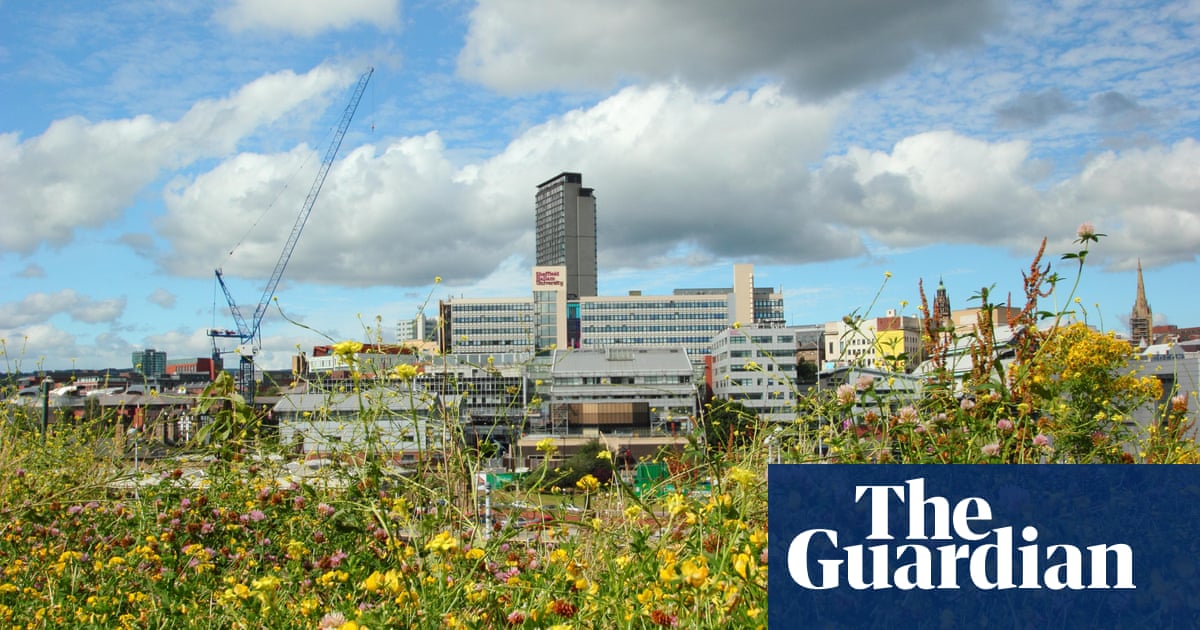
People should be given the right to turn road verges, sterile lawns around hospitals and underused public spaces into vegetable gardens and orchards, say campaigners for a “right to grow” law.
Incredible Edible, a network of more than 150 community growing groups, has drawn up plans to oblige local authorities to keep a register of public land suitable for vegetable and fruit-growing, which local groups could apply to access.
The “right to grow” campaign has cross-party support from Lords and MPs, with calls for the government to incorporate it into forthcoming levelling up legislation.
“This is a no-brainer if we really think we’ve got to give people better health, wellbeing and access to good food,” said Pam Warhurst, the co-founder of Incredible Edible, which began guerrilla food-growing on neglected public land in Todmorden, Yorkshire, in 2008. “It’s really simple and we don’t have to invest millions – let’s just better use land that taxpayers are already paying for.”
The burgeoning community growing movement has spread to hundreds of places around Britain and in countries across the world, with food-growing beside doctor’s surgeries, in railway car park corners and even in wheelbarrows in the absence of more permanent plots.
“There is an appetite for finding unloved bits of land, rolling up sleeves and growing food on it but we’ve found a very uneven playing field for people getting access to land in their community,” said Warhurst. “Currently, if you have a local authority who isn’t supportive for some reason then you’ve got a bit of a problem.”
Local growers are sometimes deterred by councils citing health and safety concerns or insurance issues. “We haven’t killed anybody yet and we have no intention of doing so,” said Warhurst.
Under the proposals, the new law would oblige councils to maintain a list of public land suitable for “community cultivation” or “environmental enhancement”, including land owned by the NHS, government agencies and possibly water utilities.
Local people and volunteer groups could apply for a certificate of lawful use to cultivate the land for an agreed period, without any rental charges or ownership change. Land that was too contaminated for growing vegetables could still be used for bee-keeping, for instance.
“The community growing movement has been having difficulties getting access to the land and this is about tipping that balance,” said Naomi Luhde-Thompson of Rights: Community: Action, a coalition of campaigners seeking to tackle the climate emergency who funded a legal assessment of the “right to grow” proposals, which could be first introduced into the House of Commons as a private member’s bill.
Mike Kane, the MP for Wythenshawe and Sale East, wants to introducea 10-minute rule bill to raise the profile of the campaign in parliament.
“In my constituency we have acres of land that is ripe for this and at the moment it can be difficult for the community to get access to it,” he said. “But there’s more and more interest in it, with social prescribing for green-fingered activities. We know that gardening and growing connects people to the land and improves their physical and mental health.
“It would be great to see the right to grow in mainstream political parties’ manifestos.”
According to Luhde-Thompson, policymakers have responded positively to the proposals, which are supported by legal advice from Landmark Chambers and have attracted the support of the crossbencher Rosie Boycott and Labour’s Barbara Young in the House of Lords.
“Everybody is just, ‘This is fantastic, why aren’t we doing it?’ and now it’s just getting it in front of the government,” said Luhde-Thompson. “If we really want to get it into law we have to hitch it to some kind of government bill, and the planning law reforms or the levelling up bill could be an exciting opportunity.”
Warhurst added: “We need people to be more active and get access to better food, which will keep them healthier. We have a planetary crisis. People have a role for creating more food for themselves and their communities that will give them health and happiness. This is an asset that is not being used properly. Does it not make sense to repurpose public land paid for by the taxpayer?
“It requires one simple thing – the will of the politicians to do it. Why not?”












